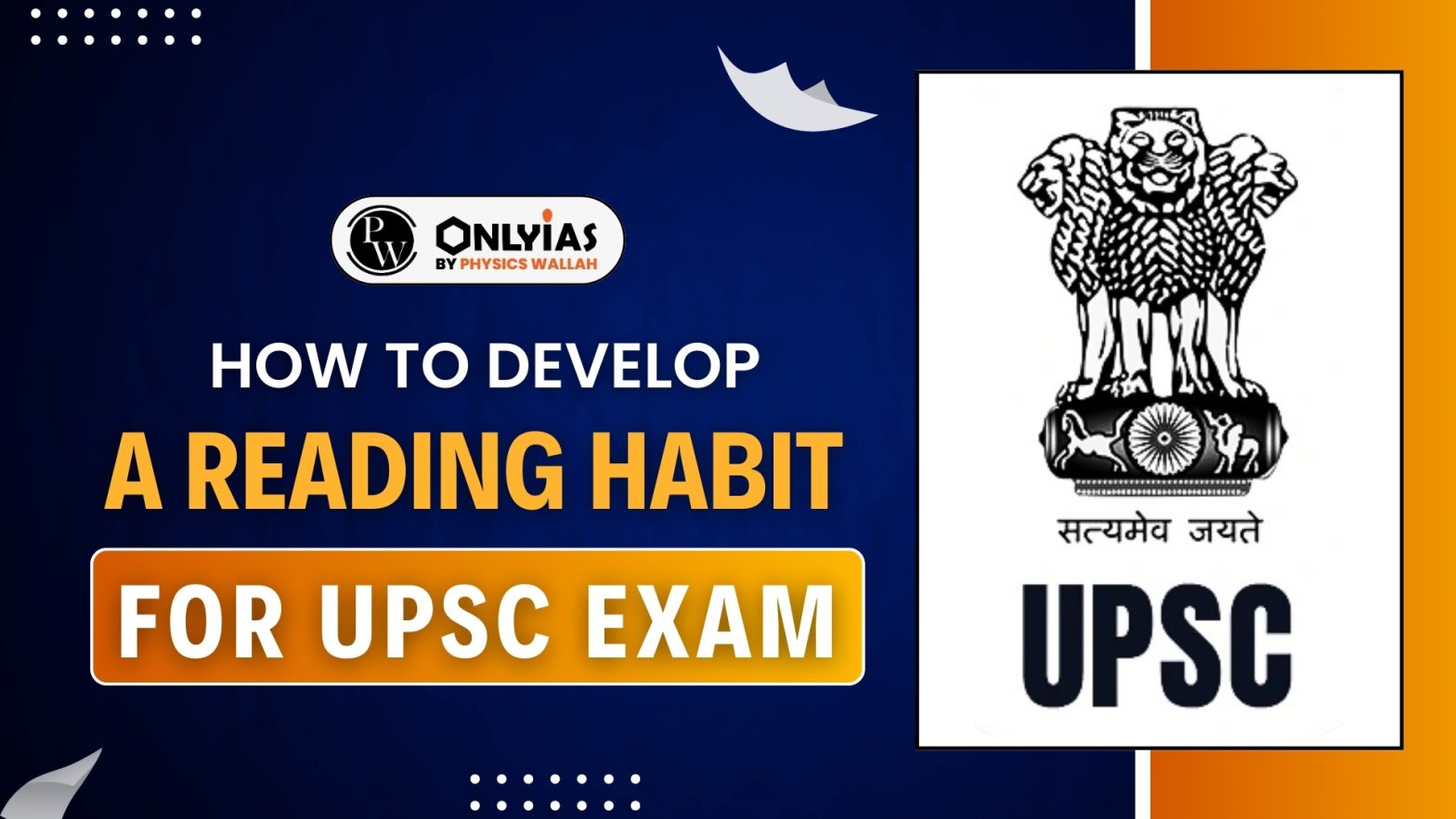Know how to develop a reading habit for the UPSC Exam. Explore effective strategies to improve your reading speed and develop a habit.

Developing a strong reading habit is essential for UPSC aspirants. The UPSC exam demands not only knowledge but also a deep understanding of current affairs, concepts, and analytical thinking. Reading helps build these critical skills while enhancing your ability to retain and comprehend vast information. So, if you are someone who struggles with reading and can not focus on reading, then here’s how you can develop an effective reading habit for UPSC preparation.
Reading fosters critical thinking and connects topics, keeping candidates informed about current events. It enhances vocabulary and communication skills. A regular reading habit helps aspirants retain information and manage time effectively, boosting their chances of exam success.
If you are wondering how to build reading habits for the UPSC Exam, then don’t worry. Reading habit can be easily build up by following the given below tips:
By following these strategies, you can build a strong reading habit and improve your study routine for UPSC. Adapt techniques that work best for you, and make sure to balance your reading with effective note-making and revision. Here are some tips for How to Read Effectively for UPSC?
The number of study hours varies depending on an aspirant’s capacity, but generally:
If you are preparing for UPSC 2025, then don’t delay anymore in preparing with the best guidance and top-notch resources. Join PW UPSC Online Batches today.
Begin by understanding the UPSC syllabus, reading NCERTs, and developing a habit of daily newspaper reading to stay updated on current events.
Focus on newspapers like The Hindu, and Indian Express, and monthly magazines like Yojana for current affairs. Books on politics, economy, and geography are also essential.
Techniques like skimming, scanning, and setting time-bound reading targets can help improve your reading speed without compromising comprehension.
Yes, daily reading is crucial, especially for current affairs and editorial analysis. It helps you stay informed and sharpens analytical skills.
Most aspirants study 6-8 hours a day. However, quality is more important than quantity, so focus on efficient study methods and consistency.

<div class="new-fform">
</div>